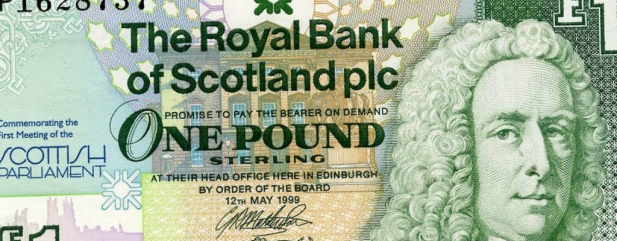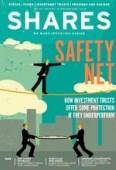Archived article
Please note that tax, investment, pension and ISA rules can change and the information and any views contained in this article may now be inaccurate.
Royal Bank of Scotland in buyback surprise

Investors in Royal Bank of Scotland (RBS) got a pleasant surprise last week when the company slipped out a seemingly routine regulatory news release.
In its ‘Notice of GM’ (general meeting) the bank said it would propose a special resolution asking shareholders for permission to buy back shares from the Treasury.
The bank is holding its annual shareholder meeting on Wednesday 6 February.
As chairman Howard Davies explains, ‘This resolution would provide the bank with the flexibility to use some of its excess capital to buy back Government shares at a time and price agreed with HM Treasury.’
The purchases will be off-market and agreed beforehand with the Treasury.
There could be one or more standalone purchases, an ongoing buy programme managed by a broker, or the bank could buy back stock in a placing or offer for sale by the Treasury.
Howard Davies again, ‘The board believes that this is in the best interests of the bank and its shareholders by helping to facilitate the return of the company to full private ownership.’
SURPRISE, SURPRISE
The first surprise is that the news wasn’t negative as RBS has tended to slip out bad news in its New Year trading updates.
Previous releases have contained warnings about restructuring charges, mis-selling charges, bad loans and pension costs.
While the news is good this time round it should be put into context. The Treasury still owns 62% of the ordinary shares of RBS with a market value of £18.3bn.
In other words, to buy 1% of its shares the bank needs to spend about £300m.
RBS has around £4bn of excess cash after it resolved a long-running dispute with US regulators last year over its role in the mis-selling of mortgage-backed products.
According to analysts at Jefferies, the bank could have as much as £7.6bn of surplus capital by 2020, or enough cash to buy back 26% of its shares.
BUYBACKS LEAVE ROOM FOR DIVIDENDS
A more realistic target would be to purchase say 5% of its shares a year which at the current price would mean spending £1.5bn, leaving plenty of cash for dividends.
RBS paid a 2p per share last October, its first dividend since being bailed out by the Treasury in 2008.
Since then investors have been hoping for a sign that it wasn’t a one off and that the bank will return to regular dividends.
Important information:
These articles are provided by Shares magazine which is published by AJ Bell Media, a part of AJ Bell. Shares is not written by AJ Bell.
Shares is provided for your general information and use and is not a personal recommendation to invest. It is not intended to be relied upon by you in making or not making any investment decisions. The investments referred to in these articles will not be suitable for all investors. If in doubt please seek appropriate independent financial advice.
Investors acting on the information in these articles do so at their own risk and AJ Bell Media and its staff do not accept liability for losses suffered by investors as a result of their investment decisions.

 magazine
magazine









